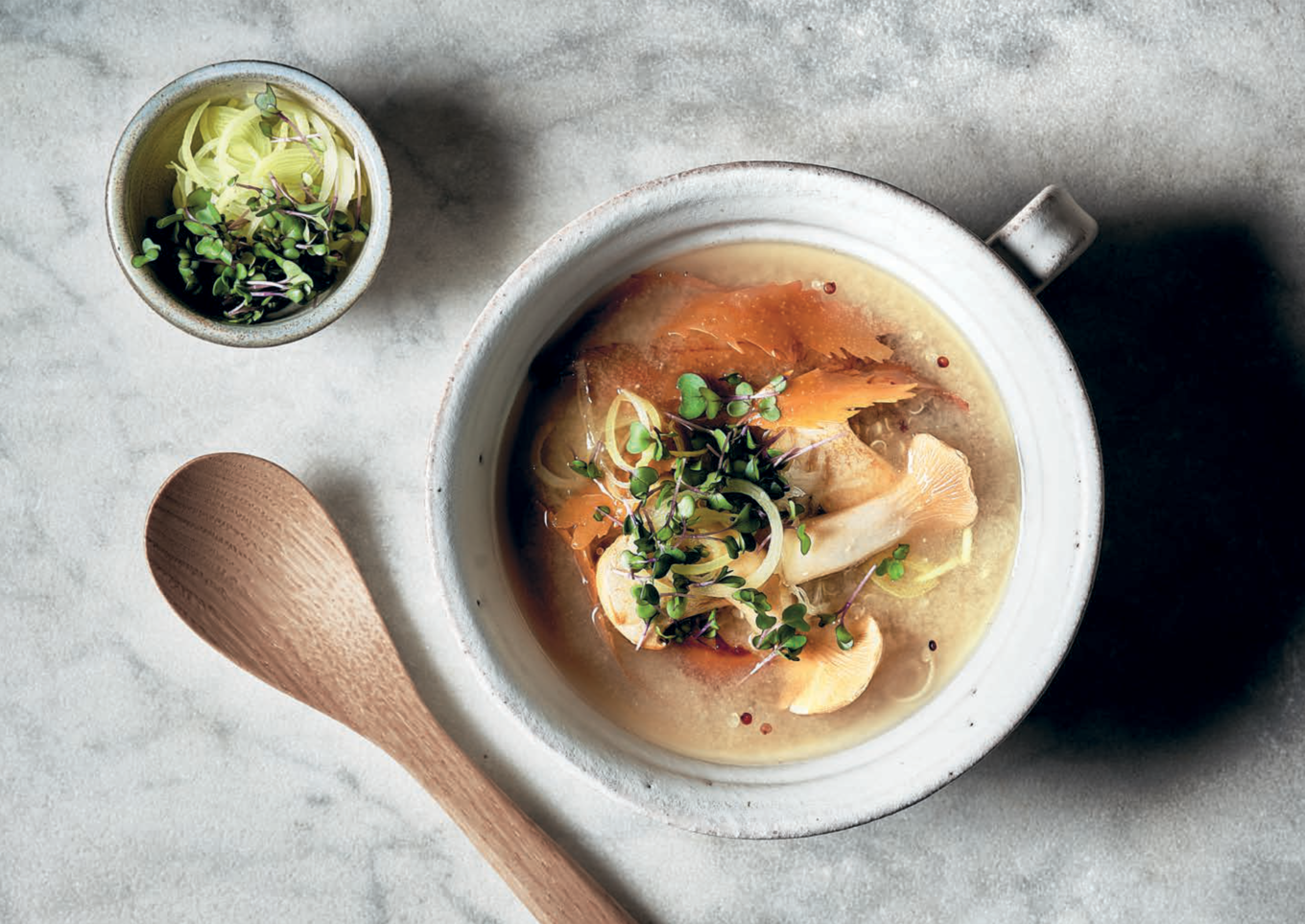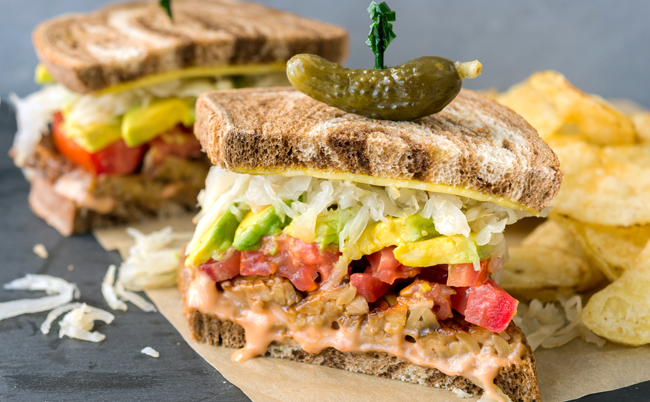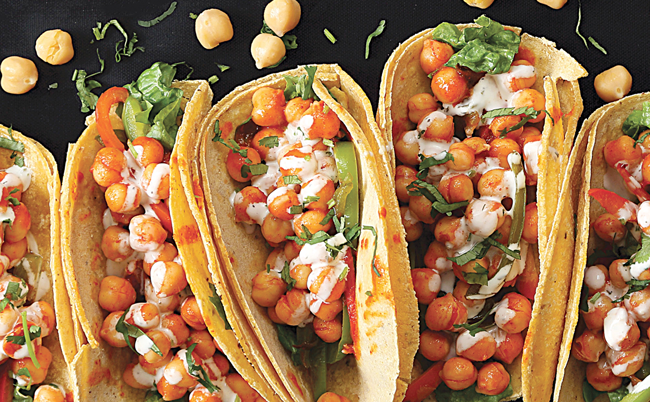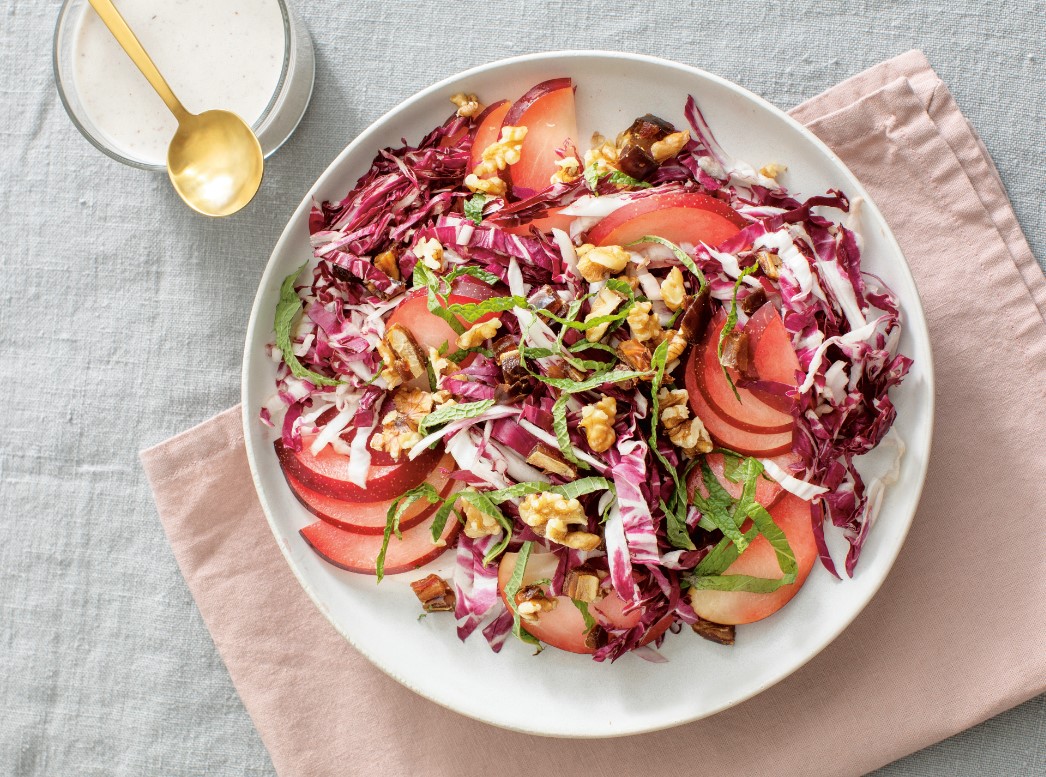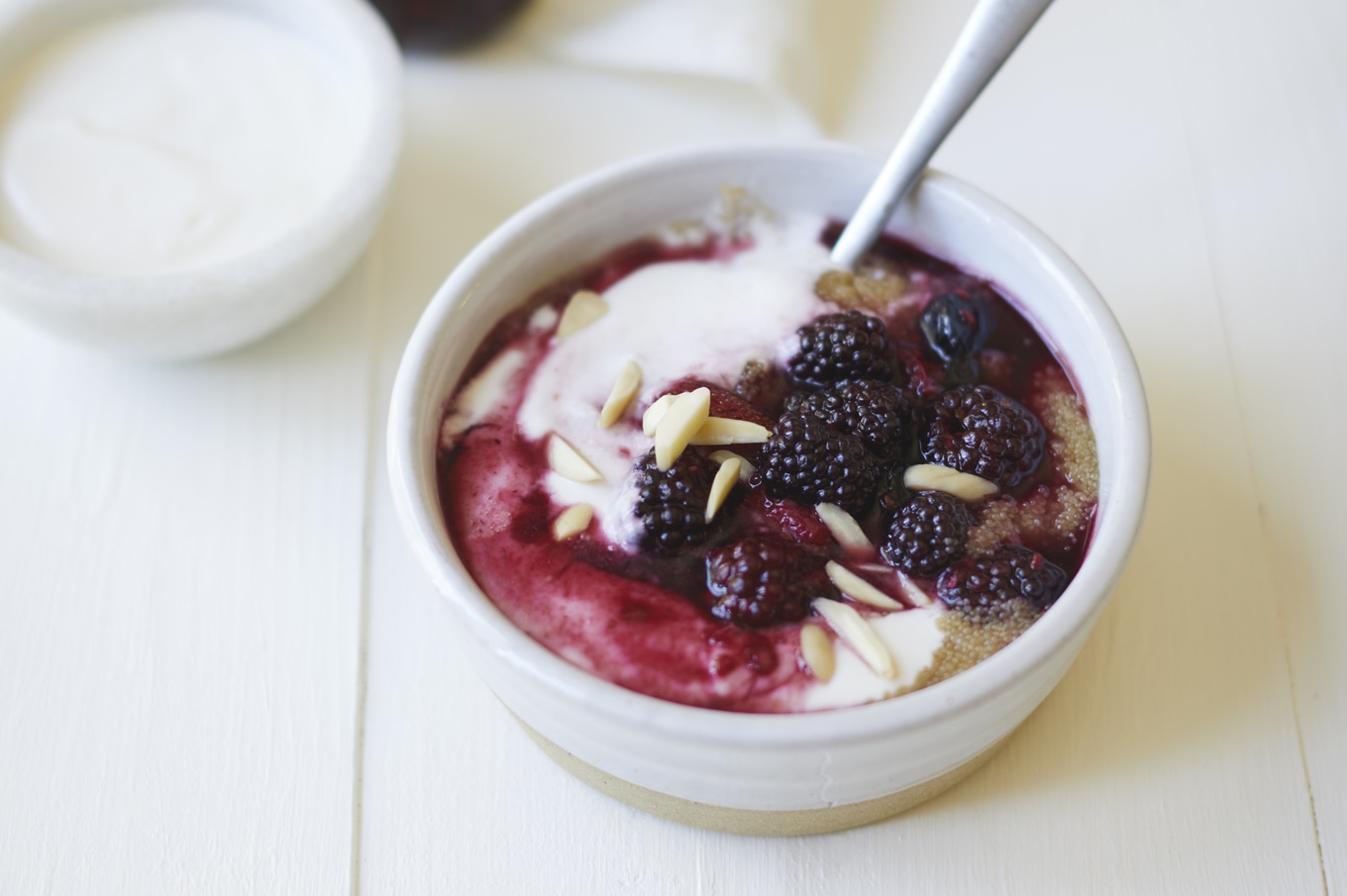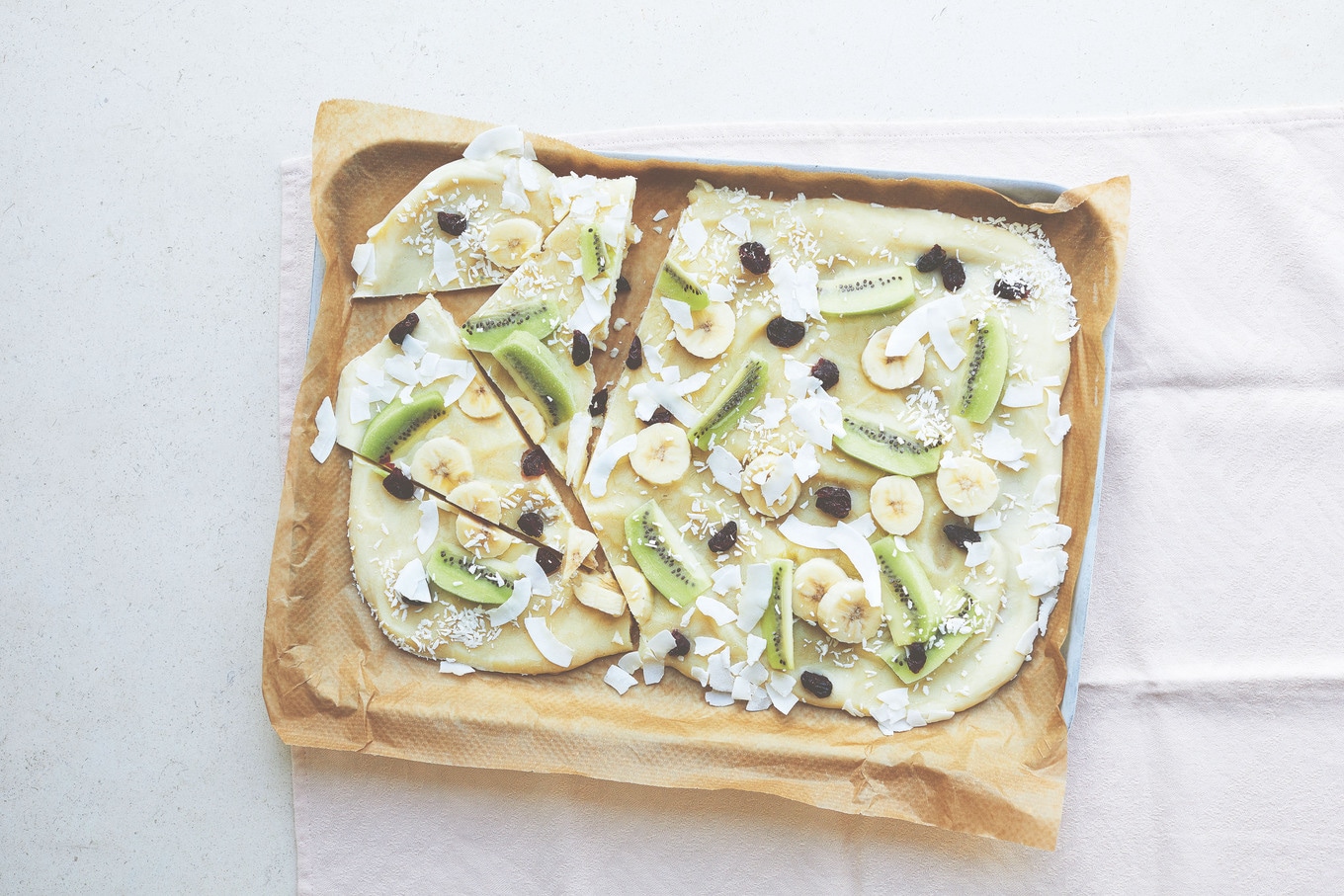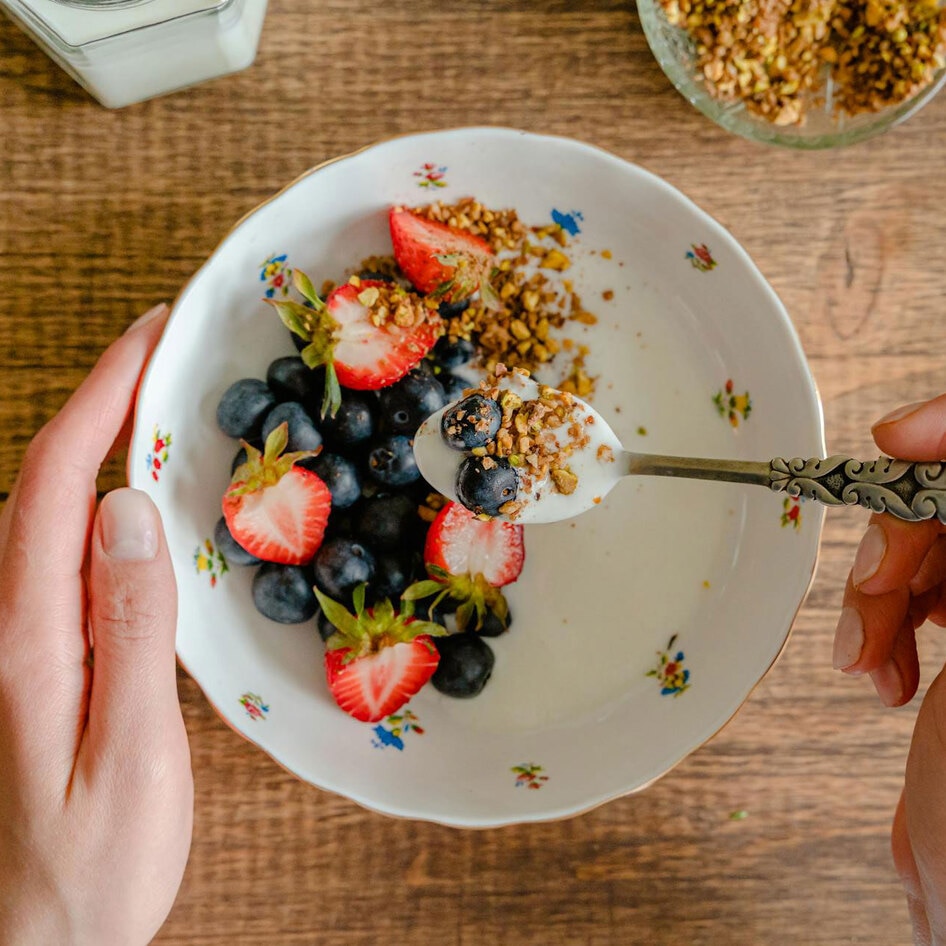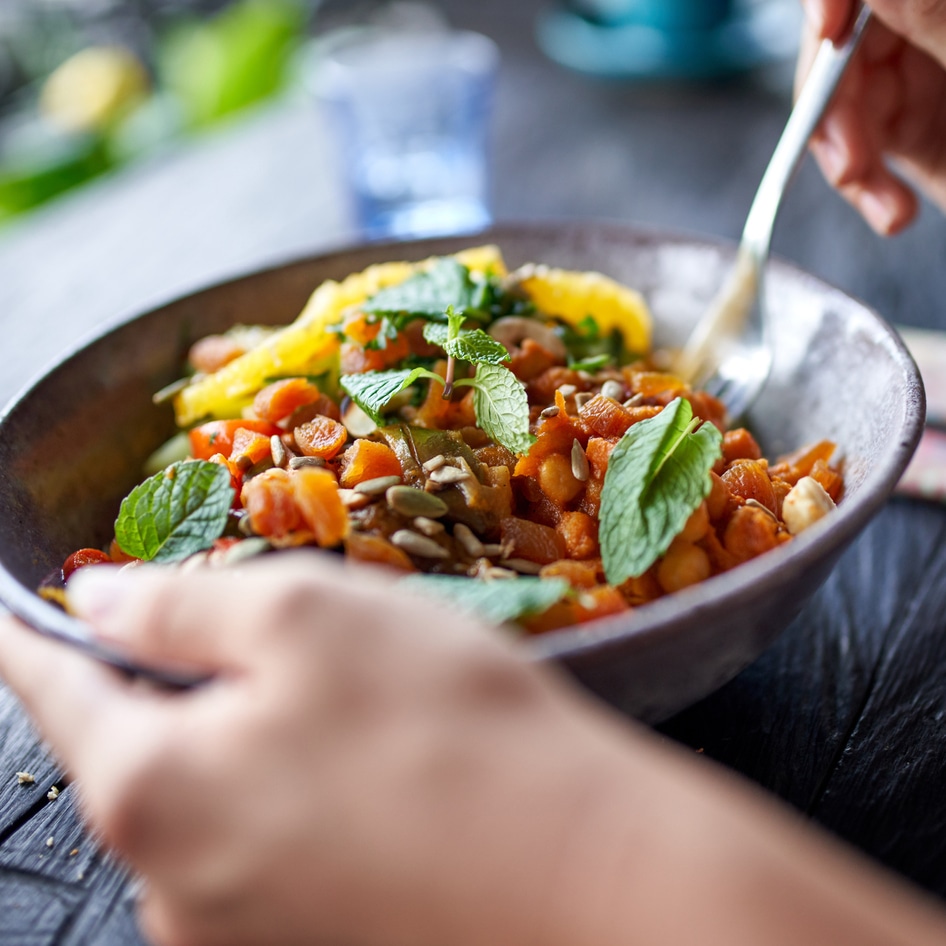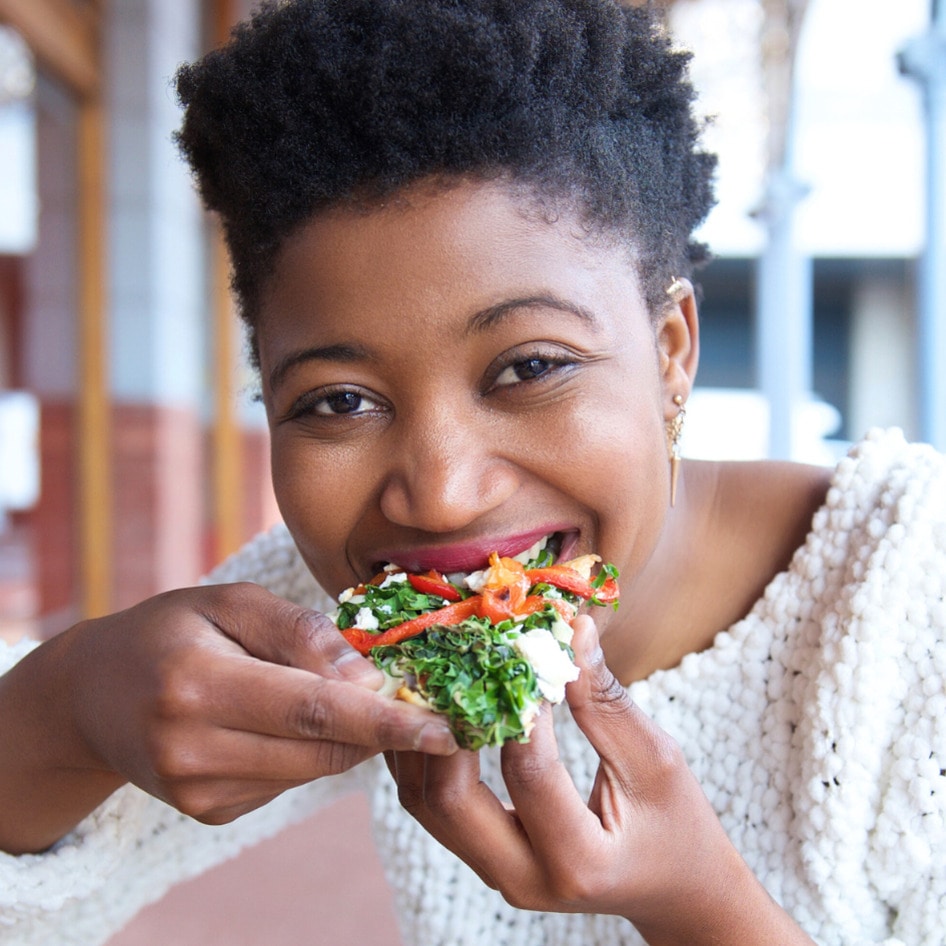The Milky Way is home to an estimated 100 billion stars. There are so many, it’s difficult for the human brain to comprehend and visualize. But if we’re talking numbers, our own bodies can beat the galaxy. Our guts contain trillions of bacteria, all of which play a vital role in maintaining overall health and well-being.
Research suggests that gut health may be able to influence everything from anxiety to bloating to serious digestive conditions, which is why it’s so important to take it seriously. There are many things that can have an impact, like high levels of stress and lack of sleep, but diet also plays a big role.
 Canva
Canva
Here, we’ve helped to pick out some of the best vegan foods and recipes for optimal gut health. But first, let’s take a look at what the gut actually is.
What is the gut?
While it’s commonly referred to as simply “the gut,” this term refers to the gastrointestinal tract. It includes several organs, including the esophagus (the long tube that carries food to the stomach from the throat), the stomach itself, and the small and large intestines.
The whole system is packed with microorganisms (not to freak you out, but these are tiny living creatures), and most of them, around 90 percent, are bacteria. These microorganisms are what experts mean when they refer to the “gut microbiome.”
Overall, the gut microbiome is bigger than our brains and weighs roughly two kilograms—that’s about the same as a standard-size brick.
Why do we have bacteria in our gut?
There are many different forms of bacteria, but our gut has five main types: Bacteroidetes, Firmicutes, Actinobacteria, Proteobacteria, and Verrucomicrobia. They have an important role to play in the day-to-day function of our bodies. They help break down food, for example, providing us with important nutrients.
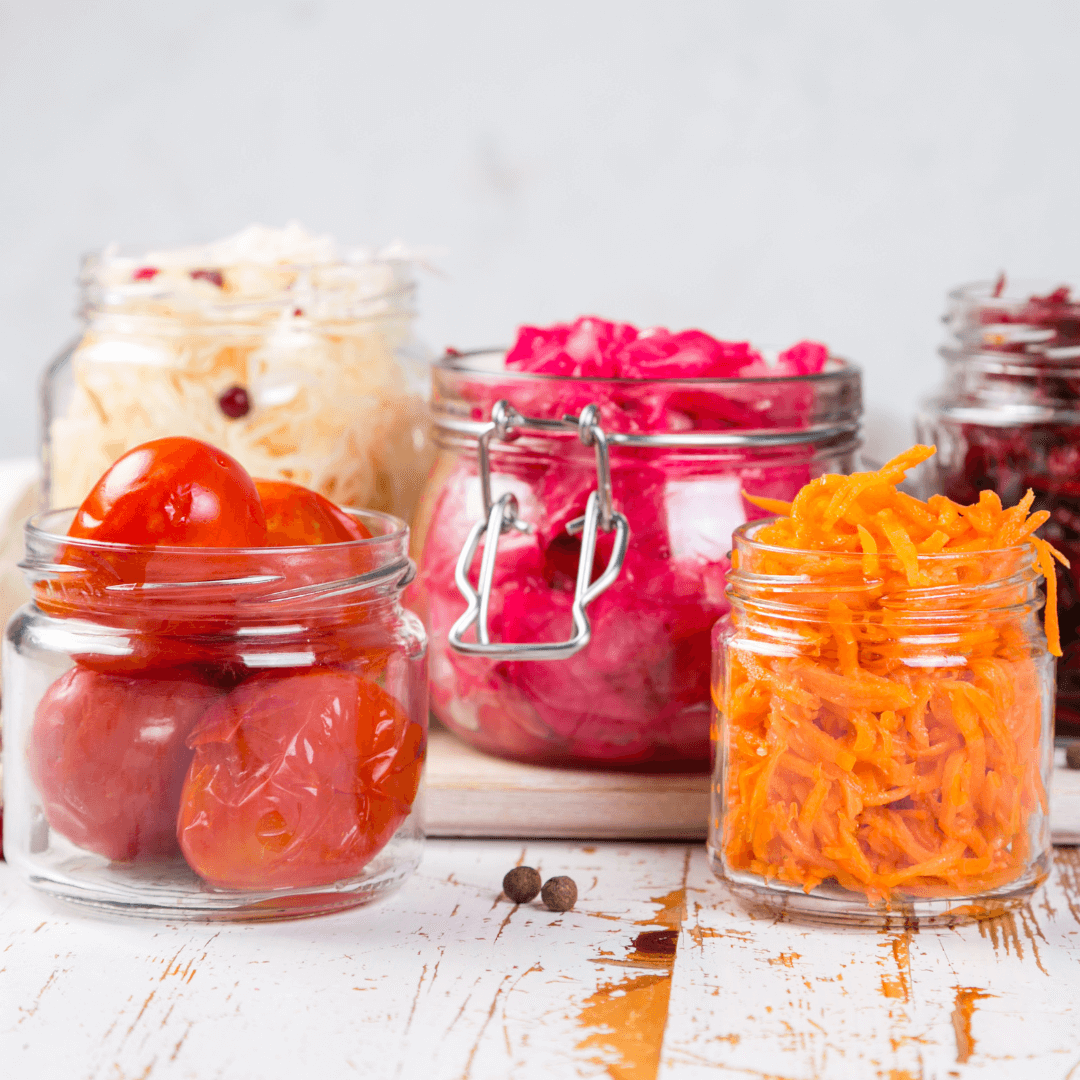 Canva
Canva
But the role of gut bacteria is far bigger than just digestion. Too much “bad” bacteria can increase the likelihood of painful and uncomfortable conditions.
In 2020, research suggested there may be a link between a genus of bacteria called Brachyspira and irritable bowel syndrome (IBS), for example. There is also evidence to suggest that people who suffer from Crohn’s disease have higher levels of another type of bacteria called Klebsiella pneumoniae.
BECOME A VEGNEWS VIP: Get exclusive product deals, freebies, and perks galore!
On the other hand, Bifidobacteria is a form of good bacteria. Some of its strains may help to protect against bad bacteria and relieve painful IBS symptoms, like stomach pain and bloating. Lactobacillus acidophilus is another helpful genus of bacteria; it can help the body absorb nutrients and keep “bad” bacteria under control.
Research suggests that other types of good gut bacteria can also have a big impact on mental health. Lactic acid bacteria, for example, can produce Gamma-Aminobutyric Acid, which can help calm us down. It regulates nerve cell hyperactivity, which is associated with anxiety and stress.
Why is gut health important?
Gut health refers to keeping a good balance of these bacteria in the gut. By supporting “good” bacteria in its role of keeping the “bad” bacteria under control, we can help support many aspects of our overall well-being.
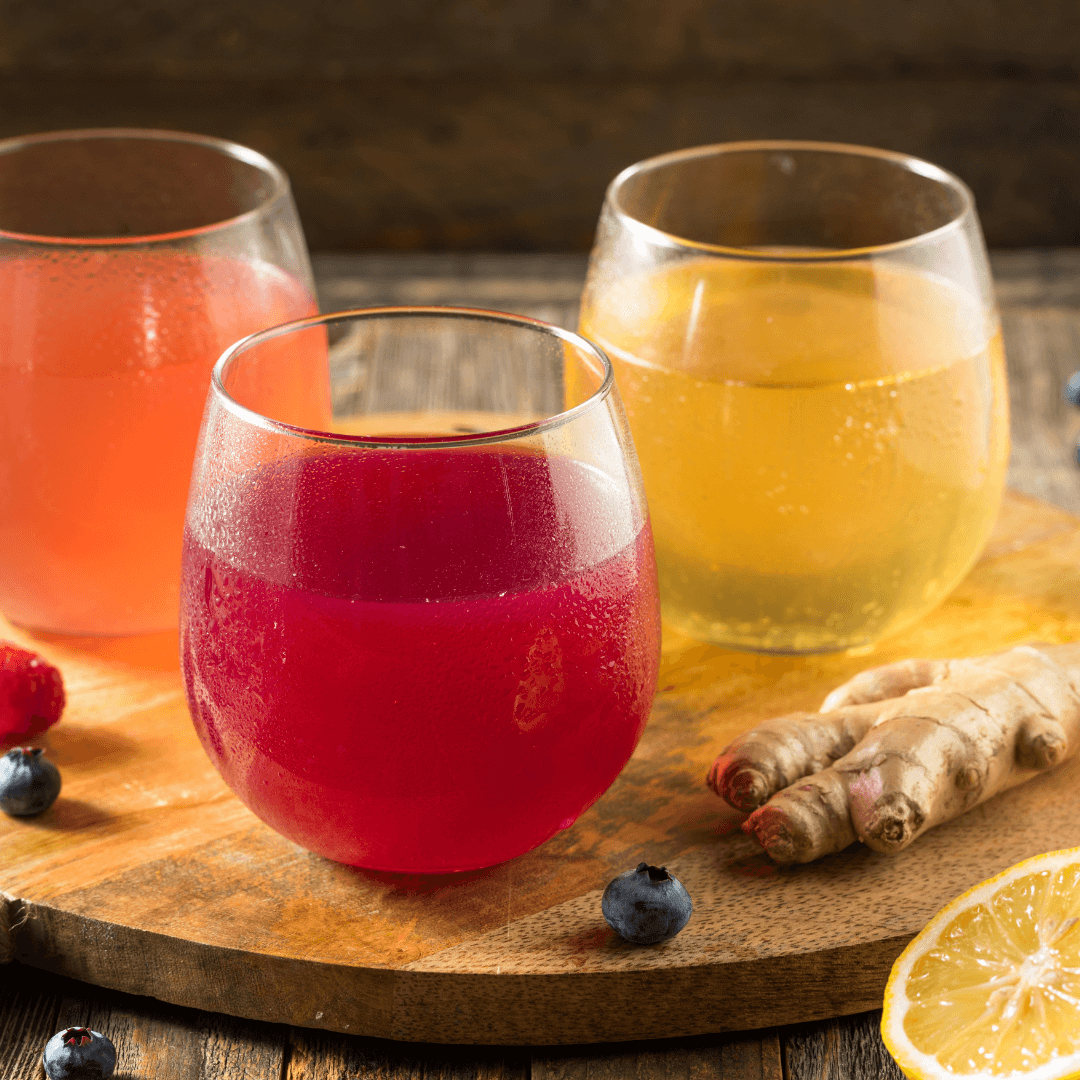 Canva
Canva
BECOME A VEGNEWS VIP: Get exclusive product deals, freebies, and perks galore!
One of the best ways to support gut health is through diet; consuming nutritious food supports good bacteria, and helps keep everything balanced and healthy. But supplementation is also becoming more popular.
Probiotic supplements for gut health
To add more “good” bacteria to your gut, one option is to take probiotic supplements. But scientists are still learning about their benefits.
There is research to suggest, however, that probiotic supplements may help restore the balance of bacteria in your gut. This balance can be threatened by the use of antibiotics, for example, and supplements, which are often vegan-friendly, may help counteract their impact.
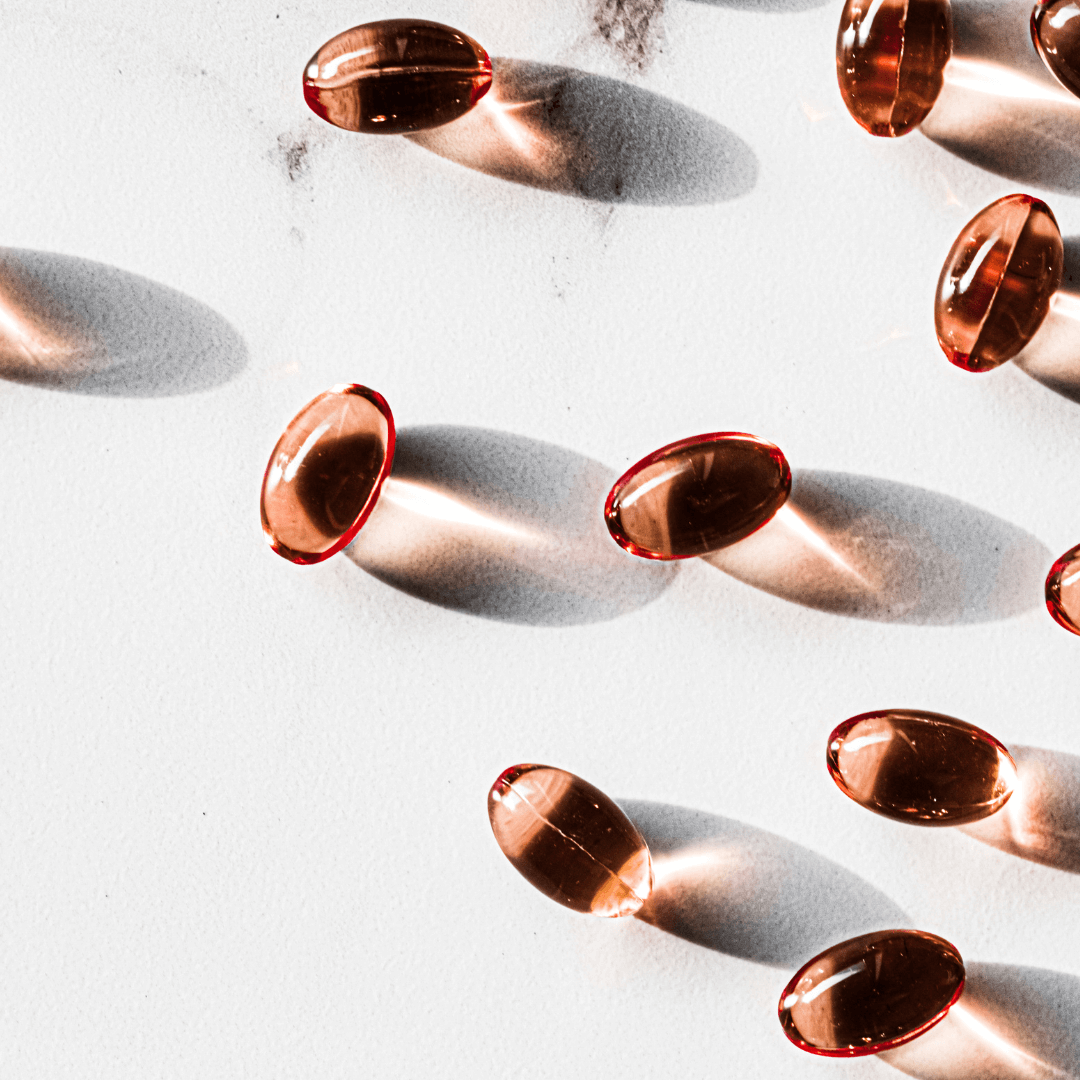 Canva
Canva
However, it’s important to be careful when buying probiotics, as their production is not regulated or overseen by the Food and Drug Administration (FDA).
“It’s not clear if probiotics that can be bought at pharmacies and health food stores are high-quality products,” warns Harvard Health in a blog post. “It’s even possible that some lower-quality products may not even contain the probiotic bacteria that are listed on the label.”
If you want to take probiotics in supplement form, the best course of action is to consult with a health professional first.
What are the best foods for gut health?
You don’t have to take supplements to support your gut, however. You can eat foods, many of them vegan, that contain probiotics. In fact, eating a diet rich in plant-based whole foods is one of the best ways to support gut health.
According to registered dietitian Jennifer Navaroli Hunter, MPH, RD, LDN, this is partly because plant-based whole foods are high in fiber, which the healthy gut bacteria feed on. She recommends consuming a “rainbow” of plant-based foods, like berries, kale, chickpeas, oats, and brown rice, for optimal gut health. “Obtaining a diverse color of these foods also increases our diversity of these nutrients,” Hunter tells VegNews.
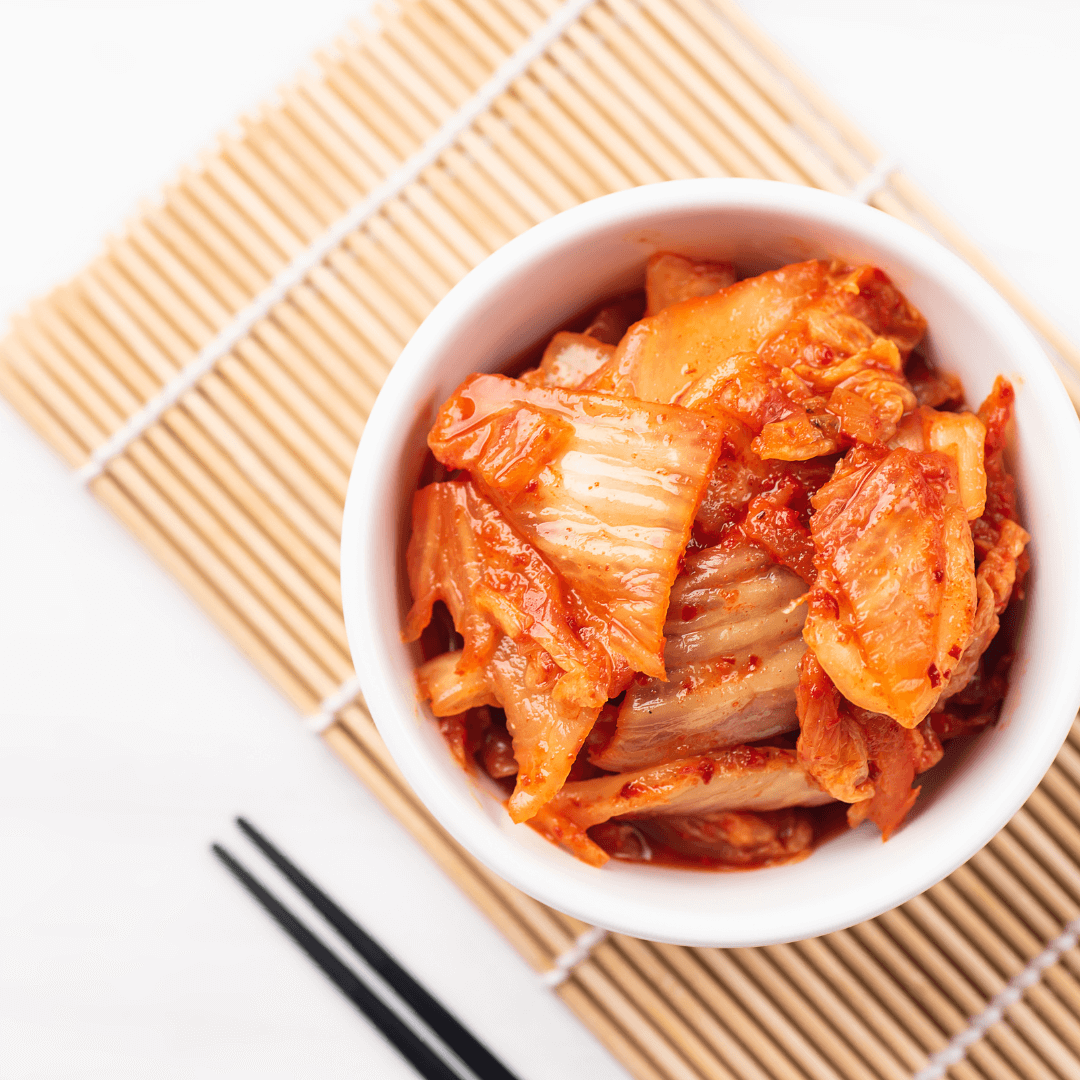 Canva
Canva
Like dairy yogurt, vegan yogurt is also a good source of probiotics. And fermented plant-based foods, like kombucha, miso, and sauerkraut, are also great dietary additions for gut health. This is because the fermentation process helps promote the growth of good bacteria. But according to registered dietitian Jennifer Hanes, MS, RDN, LDN, you need to be mindful of which type you buy.
“Look in the refrigerated section,” she advises. “Shelf stable products will likely have been cooked, which kills the probiotics, or were made using brining or vinegar, which doesn’t necessarily have the probiotics in the first place.”
Hanes also states that many plant-based foods are high in resistant starch, which is also beneficial to gut health. Essentially, resistant starch helps food get through the digestive system without being broken down so that when it reaches the large intestine, bacteria can use it as fuel.
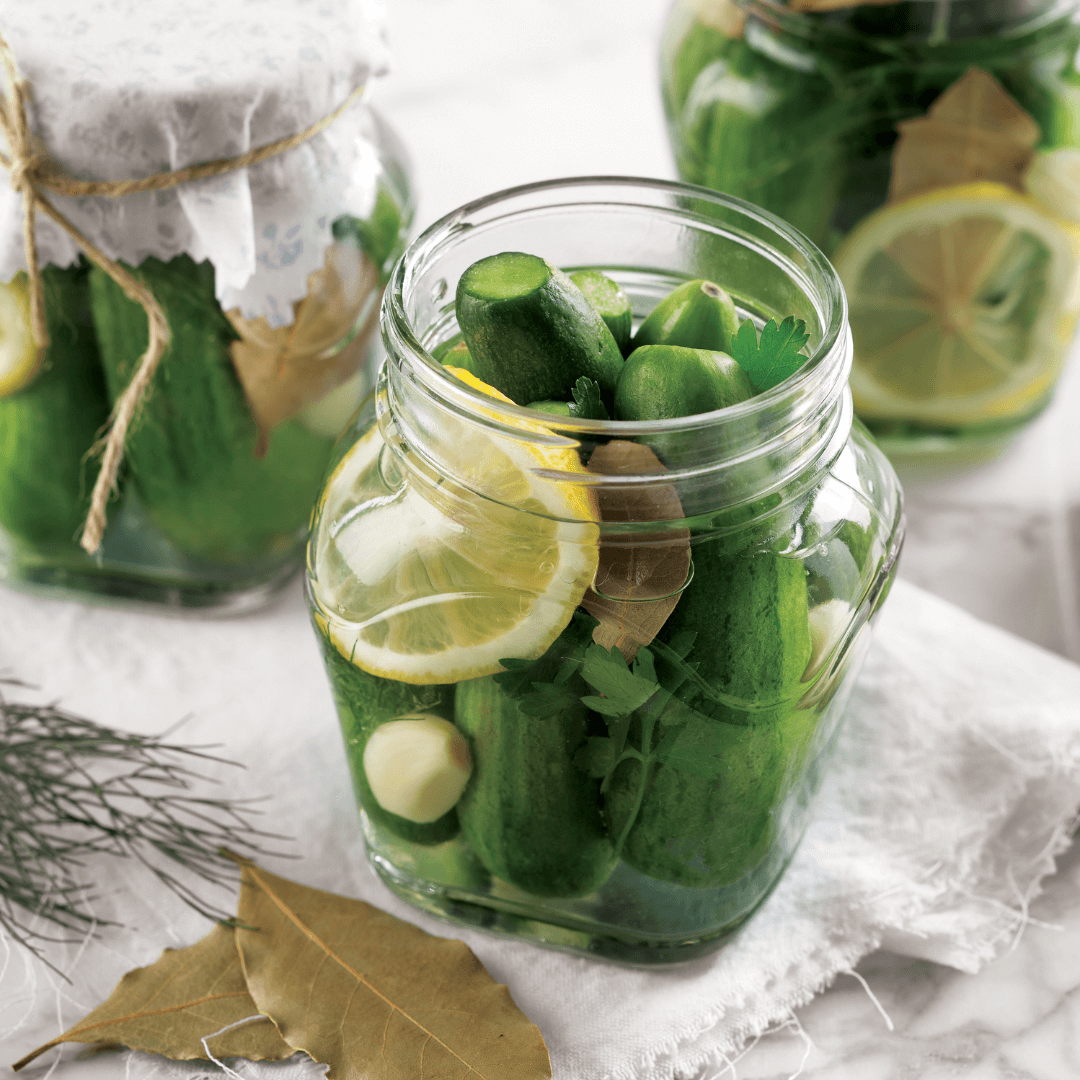 Canva
Canva
“It’s found in high amounts in oats, beans, and green bananas,” Hanes notes. “You can also increase the resistant starch levels in potatoes, whole grains, and rice by cooling them in the refrigerator for four hours after they are cooked.”
What are the worst foods for gut health?
Just like we can eat foods that support gut health, we can also eat foods that don’t. “Foods such as red meat and processed foods (such as bacon, processed lunch meat, and soda) lack fiber, nutrient diversity, and may not be beneficial for gut health in the long term,” notes Hunter.
Processed meats are particularly risky for the gut. This is because they contain nitrates and nitrites, two types of preservatives.
While they are naturally occurring and can also be found in fruits and vegetables, nitrates and nitrites present a risk in processed meat. This is because they can become carcinogenic when they come into contact with protein (inherent in meat) and heat (through cooking).
When they reach the gut, a nitroso compound can be formed, which can cause cancer. For that reason, the World Health Organization classifies processed meat as a Group 1 carcinogen.
Not all plant-based food is good for the gut either. Refined carbohydrates, like white pasta, French fries, and white bread, for example, are vegan, but they have no dietary fiber. It’s fine to eat them in moderation, but too much may have a negative impact on gut health. (Alternatives like wholemeal pasta and wholegrain bread, however, do contain good amounts of fiber.)
Gut-healthy vegan recipes
If you’re feeling inspired to take control of your gut health, we’ve gathered a few recipes to help you do just that. And all of them are 100 percent vegan with plant-based whole-food ingredients.
1 Vegan Miso Soup
As a fermented food, research suggests miso is beneficial for gut health. This recipe combines light miso paste with dried nori, mushrooms, quinoa, radish sprouts, and more, to make a delicious and nutritious soup. Enjoy by itself at lunchtime, or, if you’re planning a dinner party, this a great starter choice.
GET THE RECIPE
2 New York-Style Vegan Reuben
Again, as it is fermented, sauerkraut is considered to be a gut-friendly ingredient. You can just enjoy it by itself out of the jar, but if you prefer something with a bit more substance, add it to this delicious take on the iconic New York City Reuben sandwich.
GET THE RECIPE
3 Buffalo Chickpea Tacos
Chickpeas are a great plant-based gut-healthy ingredient, as they’re high in fiber. They’re a little bland on their own, but they are incredibly versatile and can form the basis of many tasty recipes, like these flavorful buffalo tacos, for example.
GET THE RECIPE
4Plum and Radicchio Salad With Tahini Yogurt Dressing
This flavorful Mediterranean-inspired salad is full of nutritious, fiber-rich ingredients that will benefit your digestive system, including bitter radicchio, fresh mint, and crunchy walnuts.
Get the recipe
5Berry and Almond Amaranth Porridge
Creamy non-dairy yogurt, which is packed with gut-friendly probiotics, is the perfect accompaniment to this hearty, spiced porridge breakfast bowl, which features amaranth, a nutritious ancient grain, and plenty of vitamin-rich berries.
Get the recipe
6Fruity Frozen Yogurt Bark
Soy yogurt forms the base of this sweet, probiotic-rich dessert studded with bananas, kiwis, cranberries, and toasted coconut.
Get the recipe
For more plant-based stories like this, read:
JUMP TO ... Latest News | Recipes | Guides | Health | Subscribe


